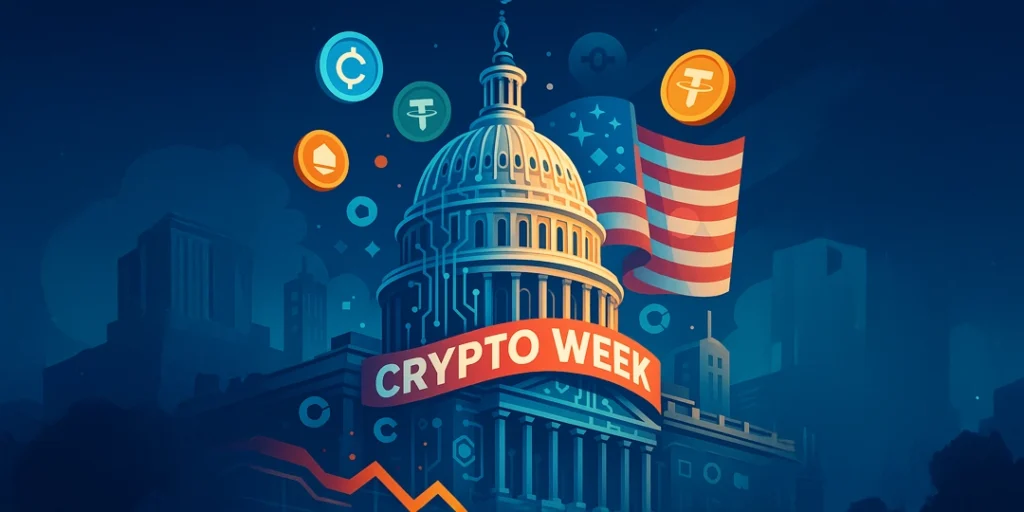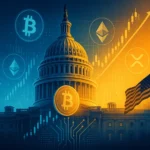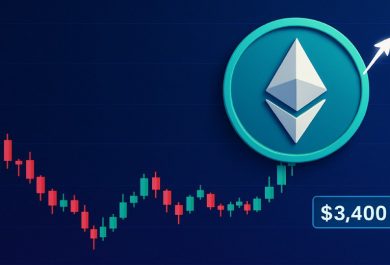The crypto industry is poised to move closer to mainstream finance this week as a series of bills are set to advance in the U.S. Congress, potentially prompting a surge in companies issuing their own stablecoins.
The House of Representatives is expected to debate a slate of crypto-related legislation during what the Republican majority has dubbed “crypto week”. The most prominent of these bills, which aims to create a comprehensive regulatory framework for stablecoins, is likely to reach President Donald Trump’s desk.
If signed into law, stablecoins would be mandated to be fully backed by highly liquid assets, such as U.S. dollars and short-term Treasury bills. Issuers would also be required to publicly disclose the composition of their reserves on a monthly basis, enhancing transparency and investor confidence.
Corporations join the stablecoin race
Corporate interest in stablecoins is on the rise, with several major global companies already launching or actively exploring their own digital dollar offerings:
Fiserv: In June, the financial technology giant announced plans to launch its stablecoin, FIUSD , by year-end. FIUSD will be integrated into Fiserv’s existing banking and payments infrastructure and will rely on stablecoin infrastructure provided by Paxos and Circle.
Major U.S. banks: Big U.S. banks are engaged in internal discussions about expanding into cryptocurrencies, buoyed by stronger endorsements from regulators, Reuters reported in May. Initial steps are expected to be cautious, focusing on pilot programs, partnerships, or limited crypto trading. Bank of America CEO Brian Moynihan hinted at a stablecoin launch earlier this year, while Morgan Stanley CEO Ted Pick expressed a desire to collaborate with regulators on becoming a middleman for crypto-related transactions. BofA declined to comment, and Morgan Stanley did not respond to Reuters’ request for comment.
Societe Generale: The French banking behemoth stated in June its intention to launch a publicly tradable, dollar-backed stablecoin through its digital asset subsidiary.
Walmart and Amazon: Both U.S. retail giants have recently explored the possibility of issuing their own stablecoins, the Wall Street Journal reported in June, citing anonymous sources familiar with the matter. However, Walmart told Reuters, “We are not piloting any programs and do not currently have any plans in place to issue our own stablecoin,” adding that it has not taken a public position on the GENIUS bill. Amazon did not respond to a Reuters request for comment.
Banco Santander SA: The Spanish bank is reportedly mulling an expansion into digital assets, including early-stage plans to offer a stablecoin, Bloomberg News reported in May, citing sources with knowledge of the matter. The bank declined to comment when contacted by Reuters.
World Liberty Financial: U.S. President Donald Trump’s crypto venture launched a dollar-pegged stablecoin called USD1 this year. The token currently boasts a market value of roughly $2.2 billion, according to CoinGecko.
PayPal: The payments giant made headlines in August 2023 by launching its U.S. dollar stablecoin, becoming the first major financial technology firm at the time to embrace digital currencies for payments and transfers.
Circle Internet: The newly public company launched its flagship USDC stablecoin in 2018. It is now one of the largest stablecoins by market value, with a market cap of around $63.4 billion, according to CoinGecko.
Paxos: The crypto-native company issues the Global Dollar stablecoin (USDG) and the Pax Dollar (USDP) , both pegged 1:1 to the U.S. dollar. Paxos also issues the BUSD token in partnership with Binance, the world’s largest crypto exchange by trading volume.
Tether: This crypto company issues an eponymous stablecoin, USDT , which is the world’s largest by market value, according to CoinMarketCap. The USDT token, with a market cap exceeding $159.5 billion, is pegged to the U.S. dollar.
MakerDAO: The company issues the DAI stablecoin, which has a market value of roughly $1.62 billion and ranks as the fourth largest globally, according to CoinMarketCap data.











